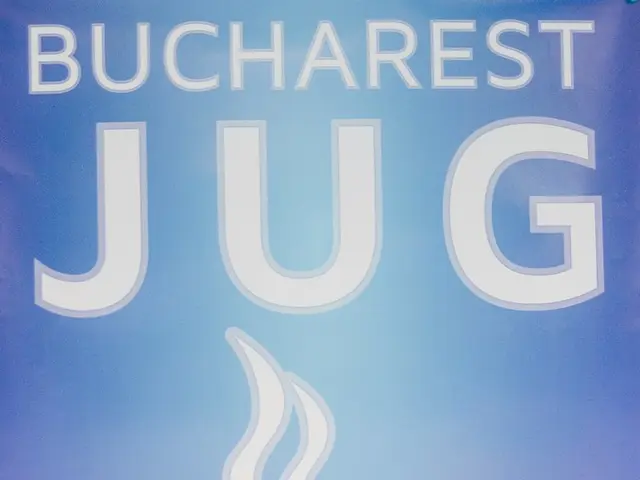Child almost died from allergy in Krasnoyarsk: incident caused by incorrect food composition at cafe
In the trendy PokeWoke café on the right bank of Krasnoyarsk, clients were served a faulty dessert. As a result, a child who ate a biscuit began choking due to an allergy.
According to Rospotrebnadzor, students from a model school visited PokeWoke on Paourse Wing.
One of the parents contacted Rospotrebnadzor. They explained that before ordering, their child with a nut allergy and a accompanying teacher asked the waiter about the chocolate brownie's ingredients. The menu did not list the composition, and the waiter replied that the dessert consisted of a chocolate biscuit and ice cream.
A few hours after the child ate half of the dessert, they showed signs of a severe allergic reaction: facial swelling, hives, and difficulty breathing.
The parents provided first aid and called an ambulance. The child was hospitalized, and doctors diagnosed them with a severe case of hives.
The parents complained to the café, but they denied any fault. In response to Rospotrebnadzor's inquiry, L.S. Frolkova, the proprietor of the business, stated that the ingredient information is only available on the café's website.
Specialists explained that under the law, customers should be provided with information about the main ingredients in the food's composition through the menu, price list, or other methods accepted during the service provision.
As a result, the entrepreneur was warned.
Rospotrebnadzor also clarified that in this situation, the consumer can claim compensation for moral damages. Initially, they should submit a written complaint to the catering organization, and if their demands are not met within 10 days, they can proceed to court with Rospotrebnadzor's support.
Photo: Rospotrebnadzor
When dealing with a compensation claim for moral damages due to food allergy misinformation in Russia, it is essential to understand the applicable legal principles and procedures, which may differ from international standards. Based on general consumer protection legislation and analogous practices, here's an outline:
1. Legal Basis for Compensation
- Consumer Information Rights: Russia’s consumer protection laws likely require businesses to provide accurate allergen information, similar to international standards like the FDA’s Food Allergen Labeling Act (referenced in AMA guidelines[4]).
- Moral Damage Claims: Under Russia’s Civil Code (Article 151), moral harm from negligence (e.g., allergic reactions due to misinformation) is compensable if causation and fault are proven.
2. Steps to File a Claim
Gather Evidence
- Medical records documenting the allergic reaction and its severity.
- Proof of misinformation (e.g., menu without allergen warnings, staff assurances contradicting ingredients).
- Witness statements from other customers or staff.
Notify the Restaurant
- Submit a written complaint to PokeWoke demanding compensation for medical costs and moral harm (retain delivery proof).
File a Complaint with Authorities
- Rospotrebnadzor (Russia’s consumer rights watchdog) can investigate and impose fines for misinformation violations[^1^].
- Court Action: File a civil lawsuit under Article 1064 (tort liability) and Article 1095 (compensation for harm from defective services).
3. Compensation Scope
- Moral damages: Determined by the court based on severity (e.g., trauma, reputational harm).
- Material damages: Medical expenses, lost income, and additional costs directly tied to the incident.
Key Considerations
- Burden of Proof: You must show the restaurant’s negligence directly caused harm (e.g., undisclosed allergens).
- Legal Representation: Engage a lawyer specializing in consumer protection or medical liability cases[^2^].
Without access to Russia-specific case law, claimants should emphasize documented negligence and the direct link between misinformation and harm. Consult local legal experts to navigate procedural nuances.
[^1^]: Analogous to France’s enforcement via DGCCRF (ICLG[1]) and U.S. state-level food safety bodies (AMA[4]).[^2^]: In line with international best practices for consumer rights litigation (ILJ[5]).
- The parent, concerned about the lack of allergen information at PokeWoke café, contacted Rospotrebnadzor after their child had a severe allergic reaction due to a chocolate brownie containing nuts.
- Rospotrebnadzor clarified that, under Russian law, businesses should provide allergen information through the menu, price list, or other methods accepted during service provision.
- To file a compensation claim for moral damages resulting from food allergy misinformation, claimants need to submit a written complaint to the catering organization, gather medical records, proof of misinformation, and witness statements, and may also need to file a complaint with Rospotrebnadzor or proceed to court.
- Compensation for moral damages is determined by the court based on the severity of the trauma and reputational harm, while material damages cover medical expenses, lost income, and additional costs directly tied to the incident.
- Claimants should emphasize the restaurant's documented negligence and the direct link between misinformation and harm when navigating Russian food allergy misinformation claims, and should consult local legal experts to understand procedural nuances.







